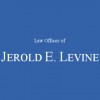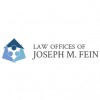
Jonathan Cooper represents businesses and individuals in business and commercial litigation cases including breach of contract, breach of fiduciary duty, as well as New York child accidents, construction site accidents and personal injury cases. Jonathan is a terrific lawyer and a great person. I have found him to be extremely knowledgable and a zealous and effective advocate for his clients.
Jonathan Cooper Jonathan Cooper has represented small businesses and seriously injured individuals before New York's trial and appellate courts for approximately 20 years. At the Law Offices of Jonathan M. Cooper, we value efficiency, innovation, honesty, and justice. We want the best for our clients, from giving them the information they need to understand their case to making sure that our office uses the newest technologies and strategies available to keep down costs and save you time.
Don't settle for an attorney who sees a case instead of an individual - let us guide you through your case and find a prompt and sensible resolution.
Jonathan Cooper Jonathan Cooper has represented small businesses and seriously injured individuals before New York's trial and appellate courts for approximately 20 years. At the Law Offices of Jonathan M. Cooper, we value efficiency, innovation, honesty, and justice. We want the best for our clients, from giving them the information they need to understand their case to making sure that our office uses the newest technologies and strategies available to keep down costs and save you time.
Don't settle for an attorney who sees a case instead of an individual - let us guide you through your case and find a prompt and sensible resolution.
Services
If you are confronted with a disloyal employee (or formal employee), who has poached (or is attempting to divert) your clients and the good will of your business, and thereby unfairly competing against your business by wrongfully purloining your trade secrets and confidential information without paying for it, you've come to the right place.
What are the elements of proof needed for a successful construction accident lawsuit in New York?.
Does the fact that the product has been recalled mean that for the purposes of my case, the manufacturer has admitted that its product is defective?.
What are the elements of proof needed for a successful construction accident lawsuit in New York?.
Does the fact that the product has been recalled mean that for the purposes of my case, the manufacturer has admitted that its product is defective?.
Your former employer has sued - or is threatening to sue - over the purported violation of a non-compete clause in your employment agreement;.
You're thinking of leaving your current job - either to start your own business or to work for someone else, but want/need some clarity whether you are barred from doing so by the non-compete clause in your contract; or, .
Your former employee has been poaching your clients and/or customers, and you want to know whether that employee's non-compete agreement is enforceable, and if so, what your legal rights are.
You're thinking of leaving your current job - either to start your own business or to work for someone else, but want/need some clarity whether you are barred from doing so by the non-compete clause in your contract; or, .
Your former employee has been poaching your clients and/or customers, and you want to know whether that employee's non-compete agreement is enforceable, and if so, what your legal rights are.
It's a term that is - and has- been thrown around in rather cavalier fashion, as a way of saying the other side impinged on your turf.
But it is first and foremost a term that has legal significance, it is somewhat of a hybrid between a number of different legal doctrines, and therefore shares - or borrows - from them, that has led to a significant amount of confusion in defining exactly what tortious interference is - and what it isn't.
In order to fully appreciate the viability - or not - of a potential tortious interference claim, these causes of action need to be evaluated against the backdrop of several related claims.
But it is first and foremost a term that has legal significance, it is somewhat of a hybrid between a number of different legal doctrines, and therefore shares - or borrows - from them, that has led to a significant amount of confusion in defining exactly what tortious interference is - and what it isn't.
In order to fully appreciate the viability - or not - of a potential tortious interference claim, these causes of action need to be evaluated against the backdrop of several related claims.
Too often, people break their word.
And as a result, many people are left without any recourse to recover what they are owed after they've been wronged.
Some of these people who have been wronged can recover what they've lost and never pursue it because they don't know that New York will, in limited circumstances, allow recovery even if you didn't have a written or signed agreement.
That's right; New York law provides that there are several circumstances when there is no valid, written agreement, a party can still recover her losses, and perhaps restored to her original position - before the parties entered into their arrangement.
And as a result, many people are left without any recourse to recover what they are owed after they've been wronged.
Some of these people who have been wronged can recover what they've lost and never pursue it because they don't know that New York will, in limited circumstances, allow recovery even if you didn't have a written or signed agreement.
That's right; New York law provides that there are several circumstances when there is no valid, written agreement, a party can still recover her losses, and perhaps restored to her original position - before the parties entered into their arrangement.
If you've been wronged by an employee, and you feel like they've betrayed your trust, your first inclination might be to think that they may be liable to you for breach of fiduciary duty.
In most cases, the answer - at least under New York law - is no; fiduciary relationships are only created in very limited circumstances.
And here is another, very important tidbit of information: you can't (successfully) bring a breach of fiduciary claim if it is based on the same set of facts as a breach of contract claim.
In most cases, the answer - at least under New York law - is no; fiduciary relationships are only created in very limited circumstances.
And here is another, very important tidbit of information: you can't (successfully) bring a breach of fiduciary claim if it is based on the same set of facts as a breach of contract claim.
Reviews

Be the first to review The Law Offices Of Jonathan M. Cooper.
Write a Review


